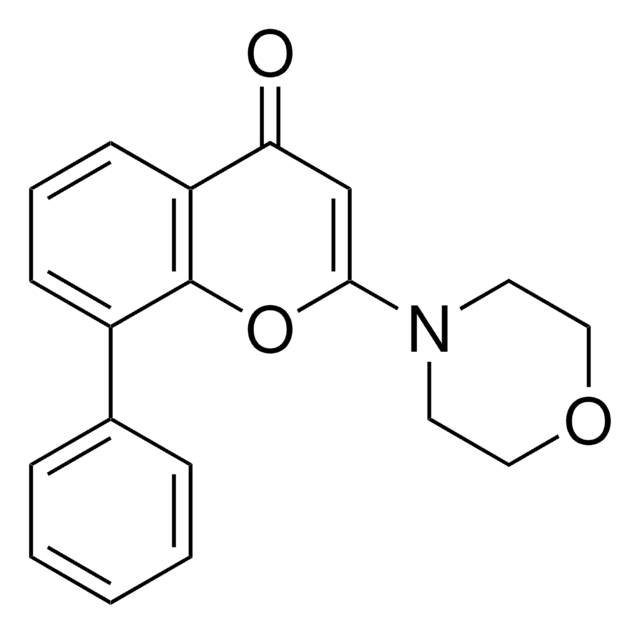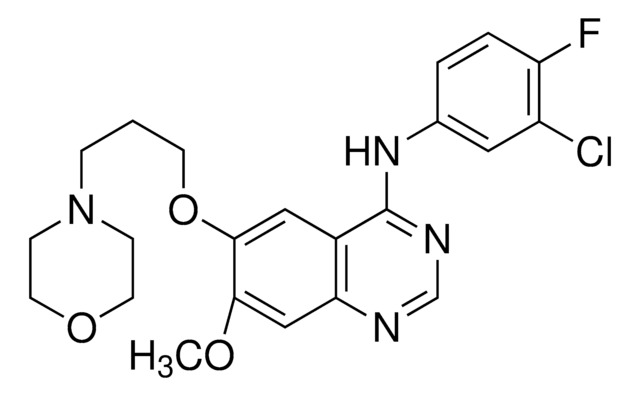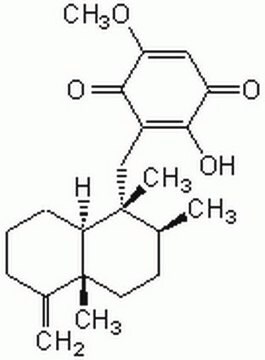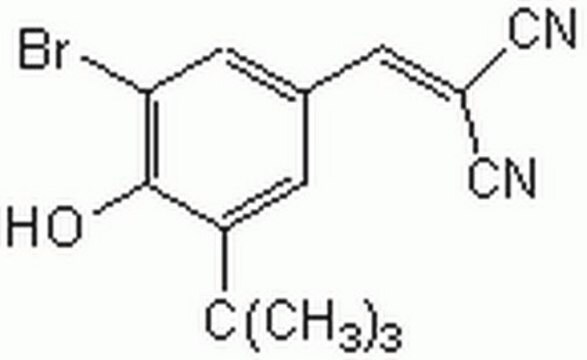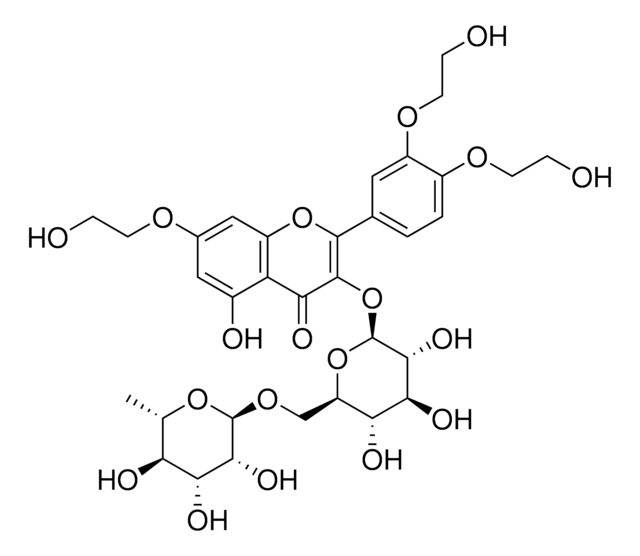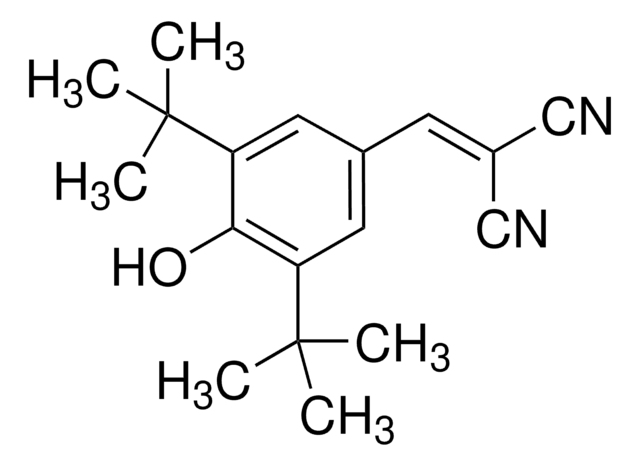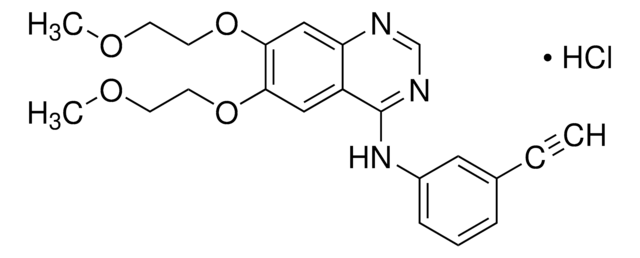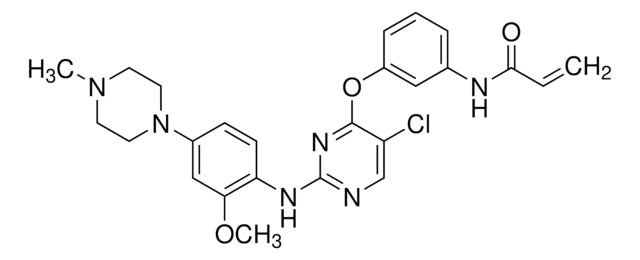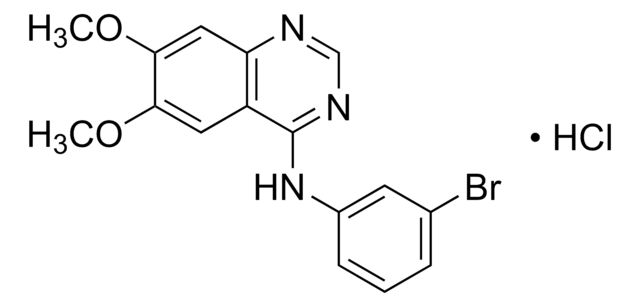T4182
Tyrphostin AG 1478
≥98%
Sinonimo/i:
N-(3-Chlorophenyl)-6,7-dimethoxy-4-quinazolinamine
About This Item
Prodotti consigliati
Livello qualitativo
Saggio
≥98%
Stato
solid
Solubilità
0.1 M HCl: soluble <0.4 mg/mL
DMSO:methanol (1:1): soluble 10 mg/mL, clear, colorless
ethanol: soluble 10 mg/mL
methylene chloride: soluble 10 mg/mL
0.1 M NaOH: insoluble
2-hydroxypropyl-β-cyclodextrin: insoluble
H2O: insoluble
Temperatura di conservazione
2-8°C
Stringa SMILE
COc1cc2ncnc(Nc3cccc(Cl)c3)c2cc1OC
InChI
1S/C16H14ClN3O2/c1-21-14-7-12-13(8-15(14)22-2)18-9-19-16(12)20-11-5-3-4-10(17)6-11/h3-9H,1-2H3,(H,18,19,20)
GFNNBHLJANVSQV-UHFFFAOYSA-N
Informazioni sul gene
human ... EGFR(1956)
mouse ... Egfr(13649)
Applicazioni
Azioni biochim/fisiol
Caratteristiche e vantaggi
Nota sulla preparazione
Codice della classe di stoccaggio
11 - Combustible Solids
Classe di pericolosità dell'acqua (WGK)
WGK 3
Punto d’infiammabilità (°F)
Not applicable
Punto d’infiammabilità (°C)
Not applicable
Dispositivi di protezione individuale
Eyeshields, Gloves, type N95 (US)
Scegli una delle versioni più recenti:
Possiedi già questo prodotto?
I documenti relativi ai prodotti acquistati recentemente sono disponibili nell’Archivio dei documenti.
I clienti hanno visto anche
Il team dei nostri ricercatori vanta grande esperienza in tutte le aree della ricerca quali Life Science, scienza dei materiali, sintesi chimica, cromatografia, discipline analitiche, ecc..
Contatta l'Assistenza Tecnica.
